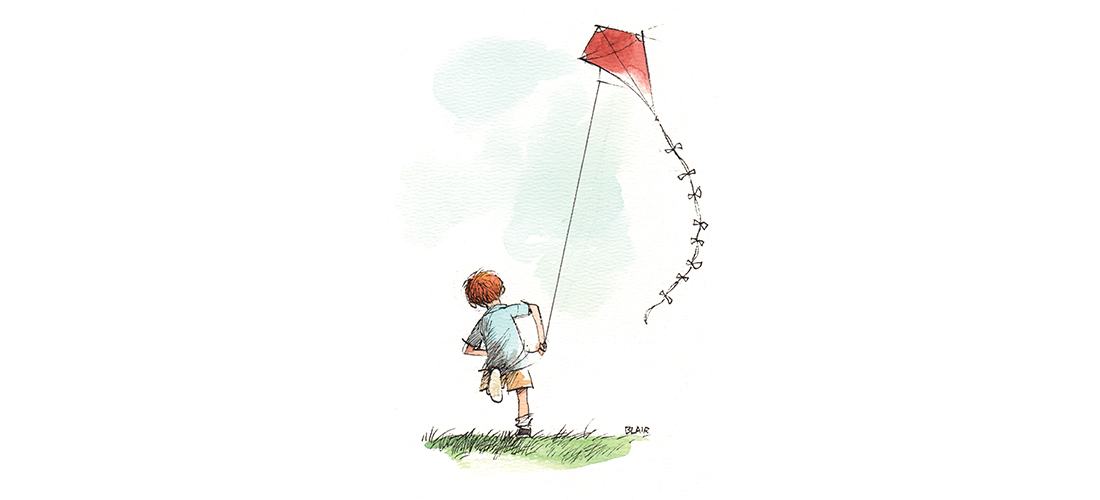Simple Small Places
And how they produce some of life’s greatest moments
By Jim Dodson
Marcus Tullius Cicero, the famous Roman philosopher and statesman, once observed that all he needed to live was a good library and his garden. I’m beginning to know what he was talking about.
In a world where life as we knew it outside home has largely come to a standstill, familiar people and places that provide a measure of comfort and sense of normality are more important than ever.
In my own narrowed sphere, I am fortunate to have a home library and garden where I can find useful diversion, fresh perspective and life more or less unchanged. As any reader knows, a good library can transport you anywhere in the world you’d care to go without leaving your comfortable armchair. And a garden keeps on growing regardless of the day’s news.
Before it became a library, the small room that leads to the large screened porch out back was where our house’s previous owner, Mama Meryl Corry, spent most of her days during the final years of her life. Her late husband, Al, was a larger-than-life character and a gifted contractor who built a number of the first houses in our postwar neighborhood, including, in 1951, his own dream house for Meryl and their four children. It’s a cozy brick-and-wood bungalow that looks more like the private retreat of a Hollywood starlet than a Carolina housewife and mother.
In fact, Mama Meryl was both — at least in the opinion of a kid who grew up two doors from the Corrys but was always in and out of their house with their two youngest sons, Craig and Britt.At a time when preteen boys begin to notice such things, Craig Corry and I maintained that we had the best-looking moms in the neighborhood. Meryl was a statuesque beauty with flowing auburn hair who looked a lot like filmdom’s leading lady Maureen O’Hara. My mom was diminutive and blond, a former beauty queen from Maryland who could have been Doris Day’s kid sister. Not surprisingly they were best friends, their alliance forged by the noisy abundance of boys underfoot.
Several years ago, as if by the sweet hand of Providence, Mama Meryl passed on and the Corrys reluctantly placed their family home on the market, just as my wife, Wendy, and I happened along in search of our own perfect house in which to grow old. We purchased the place within a week. The Corrys were delighted. To this day, you could never convince me that Mama Meryl and Big Al, wherever they relocated, didn’t have some say in the matter.
During the first two years we were updating and renovating rooms, the one space that proved to be a puzzlement was the small room with a fireplace that connected the dining room to the large screened porch in back — the same room where Mama Meryl spent most of her time after Al was gone. From oldest son, Chris, I learned that the space was originally an outdoor patio with a fireplace — another California touch. Al enclosed it for a cozy reading room featuring an entry door at the rear of the carport, allowing easier access and a good view of the arriving postman.
Sometime during our second spring in the house, as I turned my attention to tearing apart and rebuilding Mama Meryl’s overgrown gardens, it suddenly hit me that the room was ideal for a home library like the one I had for two decades in Maine.
Earlier this year, we completed work on the library, providing space for 500 or so books in custom-built maple bookcases, with new gallery lighting, original artwork, vintage rugs, a handsome antique walnut writing table and five comfortable chairs suitable for any and all sort of visitors, including spirits.
In ancient times and in every culture, libraries and gardens were considered sacred places that nurtured the human spirit. The Great Library of Alexandria in Egypt was considered the spiritual wonder of the world, housing the writings of Aristotle, Plato and Socrates, and many others — until, after years of decay, Julius Caesar was blamed for burning it down. Jesus spent his last night on Earth praying in a garden and, of course, Adam and Eve were reportedly invited to leave one dressed in fig leaves for violating property rules.
I’m pretty sure Mama Meryl approves of how I’ve updated her garden and reading room, evidenced by the fact that I can almost feel her presence in both places.
With nobody but the dogs and me likely to occupy my library’s armchairs for the foreseeable future, I’ve lately taken to inviting the spirits of well-loved authors who anchor my bookshelves to come sit for a spell in a chair of their choosing.
As Mama Meryl hovers approvingly, methinks Walker Percy prefers the houndstooth club chair while — naturally — Joseph Campbell fancies the mythic oak chair with Egyptian carved heads. Mary Oliver lounges in the elegant red Deacons chair where Annie Dillard often sits, and the big comfy wicker number is rightly claimed by my friend Elwyn Brooks White, whose iconic children’s books (Stuart Little, Charlotte’s Web) and collections of essays shaped my views on life and writing from age 6 onward. They inspired me to chase a career in which I’ve wound up eating my own words — or at least living off them.
At times like these, E.B. White’s Pulitzer Prize-winning essays, letters and other works have traveled with me since the year I graduated college, and are a tonic for the captive soul.
Particularly endearing is his essay, “Death of a Pig,” which details the author’s struggles to save an ailing pig and make peace with his own grief.After burying his pig beneath a wild apple tree with his rambunctious dog Fred in attendance, White confides: “I have written this account in penitence and grief, as a man who failed to raise his pig . . . The grave in the woods is unmarked, but Fred can direct the mourner to it unerringly and with immense good will, and I know he and I shall often revisit it, singly and together, in seasons of reflection and despair, on flagless memorial days of our own choosing.”
White and his wife, Katherine, lived on a saltwater farm in North Brooklin, Maine, an hour or so up the road from where my first wife and I lived after we married in 1985 — four days after my favorite author passed away.
I never got to meet him, though an unlikely connection unexpectedly came my way through the garden.
Upon learning that Wendy and I planned to move home to North Carolina in the winter of 2007, an elderly friend who claimed to be friendly with Katherine White gave me a remarkable going away gift — a clump of white Italian coneflowers she claimed originated in the garden of Katherine White.
Remarkably, the flowers made it through a succession of long-distance moves and careful transplantings, faithfully returning spring after spring for more than a decade.
Ironically, our last move home to the Corry house proved to be the undoing of my well-traveled coneflowers. Perhaps their uprooting in late summer and the idea of making it to another spring was simply too much for them to contemplate.
In any case, I think about those coneflowers from time to time, usually when I’m resting with a cool beverage in an old wooden chair after a day of work in the garden, my other sacred sanctuary in the time of coronavirus.
From the depths of that old chair, I find it reassuring to study the stars before dawn and while the birds of late afternoon are dive-bombing the feeders as the last light falls like a benediction over the yard.
Certain questions, for the moment at least, remain unanswered. For example, I shall probably never know if those handsome white coneflowers really came from Katherine White’s garden, though I like to think that they did. Their message is clear.
“To live in this world,” advises my friend the poet Mary Oliver from her grand red chair in the library, “you must be able to do three things. To love what is mortal; to hold it against your bones knowing your own life depends upon it; and when it comes time to let it go, to let it go.”
Mama Meryl knew this. I suppose I’m finally learning it, too.
Someday this house will pass into other hands and the books of my fine home library will be boxed up and donated to the annual church auction or carted off to the community book sale.
Likewise, without me around to keep it trimmed and tidy, my garden will likely overrun its borders and spread into places it was never meant to go, a disordered Eden that may prompt the new homeowner to hack it down without a trace.
But for now, like long-gone Cicero before me, these are the simple small places where I seek and find whatever there is for present comfort during these flagless memorial days — from books that still let me roam the world to a garden where, I noticed just yesterday, the bluebirds have returned for the third year in a row to start a new family — a sign that life always begins again.
Contact Editor Jim Dodson at [email protected].


